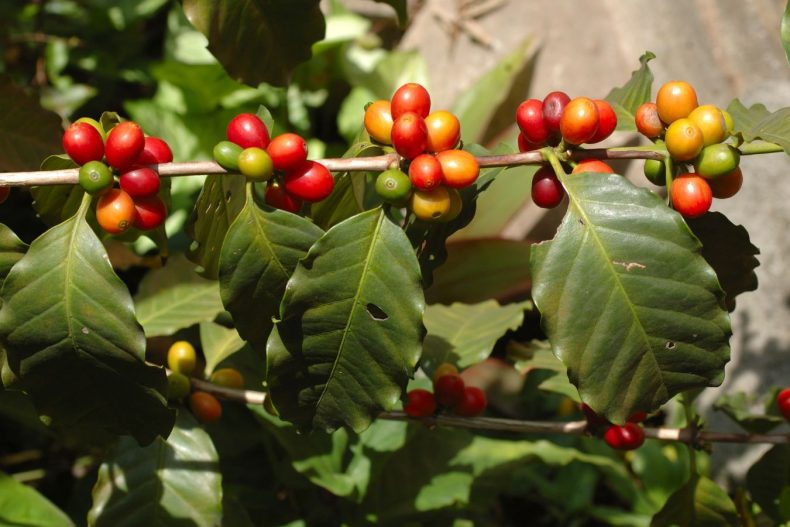
Coffee has become an indispensable part of our daily lives. We start our mornings with a cup of coffee, and some of us even need it to function properly throughout the day. But, have you ever thought about the environmental and social impact of your coffee addiction?
The coffee industry is notorious for its unsustainable practices, with coffee cultivation causing deforestation, soil erosion, water pollution, and greenhouse gas emissions. Moreover, coffee farmers often struggle with poverty and exploitation, receiving meager prices for their hard work.
Thankfully, sustainable coffee cultivation is becoming increasingly popular, with more and more farmers and businesses adopting eco-friendly and ethical practices. One country leading the way in this movement is Thailand, where sustainable coffee cultivation is transforming the industry and empowering local communities.
In this article, we’ll delve into the world of sustainable coffee Thailand, and Thai coffee cultivation, exploring its benefits, challenges, and future prospects.
Benefits of Sustainable Coffee Cultivation in Thailand
Sustainable Coffee Thailand refers to a set of practices that promote environmental, social, and economic sustainability in coffee production. These practices include using organic and shade-grown farming methods, conserving water and soil, promoting biodiversity, and ensuring fair wages and working conditions for farmers.
Here are some of the benefits of sustainable coffee cultivation in Thailand:
- Protects the Environment: Sustainable Coffee Thailand is reducing the environmental impact of coffee production by preserving forests, conserving water and soil, and reducing greenhouse gas emissions. This helps to combat climate change and preserve natural resources for future generations.
- Improves Coffee Quality: Sustainable coffee Thailand practices result in higher quality coffee beans, as the beans are grown in healthy and diverse ecosystems that enhance their flavors and aromas.
- Empowers Farmers: Sustainable Coffee Thailand provides fair wages and working conditions for coffee farmers, helping to improve their livelihoods and break the cycle of poverty.
- Enhances Local Communities: Sustainable Coffee Thailand supports local communities by providing jobs, promoting biodiversity, and preserving cultural traditions.
Challenges of Sustainable Coffee Cultivation in Thailand
While Sustainable coffee Thailand offers many benefits, it also faces some challenges, including:
- Lack of Awareness and Support: Many coffee farmers in Thailand are unaware of sustainable coffee cultivation practices and may not have access to the resources and support needed to adopt them.
- High Costs: Sustainable coffee Thailand cultivation requires additional investments in infrastructure, training, and certification, which may be prohibitively expensive for small-scale farmers.
- Limited Market Access: Sustainable coffee may have limited access to international markets due to certification and labeling requirements, which can be complex and expensive to comply with.
- Climate Change: Climate change is affecting coffee production in Thailand and other coffee-growing regions, with rising temperatures, droughts, and pests threatening coffee crops.
What challenges do Thai coffee farmers face?
Despite the many advantages of coffee cultivation in Thailand, the industry is not without its challenges. One of the biggest obstacles facing Thai coffee farmers is the issue of fair prices. Many farmers struggle to make a living wage, as the prices paid by coffee buyers often do not reflect the true cost of production.
In addition, climate change poses a significant threat to coffee production in Thailand. Rising temperatures and changing weather patterns can lead to crop failure and reduced yields. This, in turn, can have devastating consequences for the livelihoods of coffee farmers and their communities.
Thai Coffee Cultivation Practices
Thailand has a long history of coffee cultivation, with coffee trees first introduced by King Rama V in the late 19th century. Today, coffee is grown in several regions of Thailand, including Chiang Mai, Chiang Rai, Mae Hong Son, and Tak.
Thai coffee cultivation practices vary depending on the region, climate, and soil conditions. However, some common practices include:
- Organic Farming: Many Thai coffee farmers use organic farming practices, avoiding synthetic fertilizers and pesticides and relying on natural methods to enhance soil fertility and pest control.
- Shade-Grown Coffee: Shade-grown coffee is a popular practice in Thailand, as it promotes biodiversity, conserves water, and enhances coffee quality. Shade-grown coffee is grown under
- Fair Trade: Fair trade is a growing movement in Thailand, with more and more coffee farmers receiving fair prices for their coffee beans, along with access to credit, education, and healthcare.
- Community-based Coffee: Community-based coffee is a unique model of coffee production in Thailand, where coffee is grown by local communities using traditional knowledge and practices. Community-based coffee provides livelihoods for rural communities and helps to preserve their cultural heritage.
Sustainable Coffee Businesses in Thailand
Many coffee businesses in Thailand are embracing sustainable coffee cultivation practices, offering high-quality, eco-friendly, and ethical coffee to local and international consumers. Here are some notable examples:
- Akha Ama Coffee: Akha Ama Coffee is a social enterprise in Chiang Mai, founded by Lee Ayu Chuepa, an Akha indigenous woman. Akha Ama Coffee sources coffee beans from local farmers, promoting organic and shade-grown practices and providing fair prices and support for the farmers.
- Doi Chaang Coffee: Doi Chaang Coffee is a fair trade coffee brand in Chiang Rai, co-owned by a group of coffee farmers from the Akha hill tribe. Doi Chaang Coffee promotes sustainable coffee cultivation practices and offers high-quality, single-origin coffee beans.
- Maejo Coffee: Maejo Coffee is a coffee research and training center in Chiang Mai, operated by Maejo University. Maejo Coffee promotes sustainable coffee cultivation practices and offers training and education for farmers, students, and coffee enthusiasts.
- Black Canyon Coffee: Black Canyon Coffee is a Thai coffee chain with over 300 stores in Thailand and other countries. Black Canyon Coffee sources coffee beans from sustainable and ethical sources, offering a variety of coffee blends and drinks.
Nurturing Thai Coffee Cultivation for a Better World
Nurturing Thai coffee cultivation for a better world is an important goal that many coffee farmers in Thailand are working towards. Sustainable coffee cultivation practices are essential for the health of both the environment and the communities that depend on coffee production for their livelihoods. By prioritizing sustainability, Thai coffee farmers can help ensure a bright and equitable future for their industry.
One way that Thai coffee farmers are nurturing their industry is by investing in community development. Many coffee farming communities in Thailand face significant economic and social challenges, and coffee farmers are working to address these issues by supporting local schools, healthcare facilities, and infrastructure improvements. The “Doi Chaang” coffee brand is a notable example of this approach, with a portion of its profits going towards community development initiatives.
Another way that Thai coffee farmers are nurturing their industry is by prioritizing sustainable farming practices. Coffee cultivation can have a significant impact on the environment, and farmers are working to minimize this impact by using techniques such as intercropping, composting, and natural pest control methods. By promoting biodiversity and preserving the health of the soil, farmers can help ensure the long-term viability of their crops while also minimizing environmental harm.
Moreover, sustainable coffee cultivation practices are also beneficial for the long-term economic health of the industry. By prioritizing quality and sustainability, Thai coffee farmers can command higher prices for their coffee and create more stable and prosperous livelihoods for themselves and their communities.
The Thai Coffee Association and the Specialty Coffee Association of Thailand are two organizations that are working to support sustainable coffee cultivation in Thailand. These organizations provide resources and support to coffee farmers, as well as promote sustainable and ethical practices within the industry.
In conclusion, nurturing Thai coffee cultivation for a better world is an important goal that requires commitment and dedication from coffee farmers and industry stakeholders. By investing in community development, promoting sustainable farming practices, and supporting organizations that prioritize sustainability and ethical practices, the Thai coffee industry can create a more equitable and sustainable future for all. By supporting these efforts, consumers can also make a positive impact and help ensure a bright and sustainable future for the industry.
FAQs about Sustainable Coffee Thailand
- What is sustainable coffee cultivation?
Sustainable coffee cultivation refers to a set of practices that promote environmental, social, and economic sustainability in coffee production, including organic and shade-grown farming methods, water and soil conservation, biodiversity promotion, and fair wages and working conditions for farmers.
- Why is sustainable coffee important?
Sustainable coffee is important because it helps to reduce the environmental impact of coffee production, improve coffee quality, empower farmers, and enhance local communities.
- How can I support sustainable coffee in Thailand?
You can support sustainable coffee Thailand by buying coffee beans and products from sustainable and ethical sources, such as fair trade or organic certified coffee brands, visiting coffee shops and cafes that promote sustainable practices, and learning more about sustainable coffee cultivation.
Conclusion
Sustainable Coffee in Thailand is not just a trend, but a necessity for a better and more equitable world. Thailand is a prime example of how sustainable coffee can transform the coffee industry, empower communities, and preserve natural resources. By supporting sustainable coffee in Thailand and beyond, we can enjoy our favorite cup of coffee with a clear conscience and contribute to a sustainable future for all.

